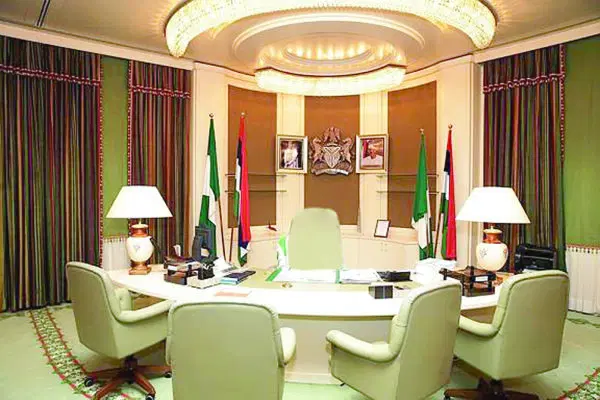Unified Public Service Contact Centre: A Strategic Solution to Rebuild Citizen Trust in Nigeria
As citizens around the world become accustomed to seamless interactions with their governments, Nigerian citizens still face hurdles when accessing public services. The country’s public service system remains fragmented, with departments operating independently, isolated communication lines, and disconnected systems. These challenges hinder efficient service delivery, frustrate citizens, and weaken their trust in government institutions. Establishing a Unified Public Service Contact Centre could change this, creating a streamlined and more accessible service experience that could help rebuild citizen confidence in Nigerian governance.
Nigeria’s Fragmented Public Service System: A Cause for Citizen Discontent
Nigeria’s public service is marked by separation and lack of coordination. Each government department manages its communication channels, databases, and points of contact, creating an overwhelming maze for citizens to navigate. For instance, a citizen seeking information about social services, tax requirements, or healthcare options must engage with multiple departments—each with separate phone numbers, emails, and websites. This not only complicates the process but also creates delays and inconsistencies, deepening citizens’ perception of government inefficiency.
Every missed call, unreturned email, or delayed response adds to the public’s frustration, damaging the trust between citizens and their government. In addition, the government often faces unnecessary duplication of efforts and resources, further complicating the path to efficient service delivery.
Unified Public Service Contact Centre: A Solution for Better Accessibility
A Unified Public Service Contact Centre would address these issues by creating a single, streamlined access point for citizens needing government assistance. Instead of struggling with multiple contact points, citizens could interact with one centralized system, making it easier to get their questions answered or to complete essential tasks, whether it’s about voter registration or social benefits. This single contact centre would efficiently direct inquiries to the appropriate departments, improving response times and reducing confusion.
From the government’s perspective, this consolidated approach would reduce redundancies, make better use of resources, and enable smoother service delivery. By utilizing modern technology, including AI-driven automation and real-time updates, the government could address citizen inquiries more efficiently and accurately.
Advantages of a Unified Public Service Contact Centre
Introducing a Unified Public Service Contact Centre could offer numerous benefits to both citizens and the Nigerian government:
- Streamlined and Accessible Service Delivery
A unified contact centre would give Nigerians one primary contact point, whether by phone, online, or other channels. This would simplify the process for citizens, provide quick resolutions, and reduce the frustration of navigating multiple departments. - Increased Transparency and Accountability
Transparency is a critical factor in building public trust. Through a unified system, citizens could track their requests in real-time, get updates, and know exactly where to go if issues arise. Such visibility and accountability are essential for reassuring citizens of the government’s dedication to serving them effectively. - Efficient Resource Management
By consolidating services into a single contact centre, the government can more effectively allocate resources and reduce duplications. This improves efficiency, shortens response times, and enhances service consistency. - Data for Continuous Improvement
A centralized contact system would provide insights into citizen needs, common issues, and any recurring bottlenecks. This valuable data would allow the government to improve services based on citizen feedback and needs continually.
The Importance of Building Trust with Citizens
The aim of a unified contact centre is to streamline public service delivery and rebuild citizens’ trust in the government. In Nigeria, public discontent with inefficiency has led to low levels of trust. Citizens who face long waits, confusion, or poor responses often disengage from civic life. For the Nigerian government, taking steps to rebuild this trust is crucial to fostering national unity and encouraging public support.
Building trust, however, takes time and consistent effort. As citizens experience more reliable and efficient service, they’re more likely to have confidence in their government’s commitment to serve them effectively. With a unified contact centre, the Nigerian government would have a tangible way to demonstrate that commitment.
Addressing Nigeria’s Unique Public Service Challenges
Nigeria’s vast, diverse landscape brings unique challenges to public service delivery. With over 200 million people spread across rural and urban areas, reaching everyone equitably is complex. A Unified Public Service Contact Centre could address these challenges by providing access across multiple channels. Citizens could connect with government services by phone, SMS, email, online chat, or social media, ensuring inclusivity for Nigerians of all backgrounds.
For those in rural communities with limited internet access, phone and SMS options would remain available. Urban residents could access online services, reducing the need to visit physical offices and helping to streamline in-person demand.
Implementing a Unified Contact Centre: The Way Forward for Nigeria
Creating a Unified Public Service Contact Centre is a transformative step in modernizing Nigeria’s approach to public services. By making it easier for citizens to access assistance and information, Nigeria can strengthen trust in government and lay the groundwork for further improvements.
For this initiative to be successful, the government should:
- Ensure Transparency: Provide citizens with real-time updates on their service requests.
- Utilize Modern Technologies: Integrate AI-driven automation and smart systems to handle requests and avoid unnecessary delays efficiently.
- Create Multi-Channel Access: Ensure citizens can reach the centre by phone, SMS, online, and other accessible means.
- Use Data Effectively: Gather and analyze data to address common issues and improve services.
Conclusion: A Path to Rebuilding Trust
The establishment of a Unified Public Service Contact Centre would mark a vital shift in how Nigerians experience public services. This system would address inefficiencies, make services more accessible, and foster greater trust in government institutions. With consistent, responsive service, citizens would feel valued and respected, promoting a healthier relationship between the government and the people it serves.
Ultimately, a unified contact centre is more than a logistical improvement—it’s an essential step toward restoring trust, improving governance, and creating a more transparent and effective public service system.

